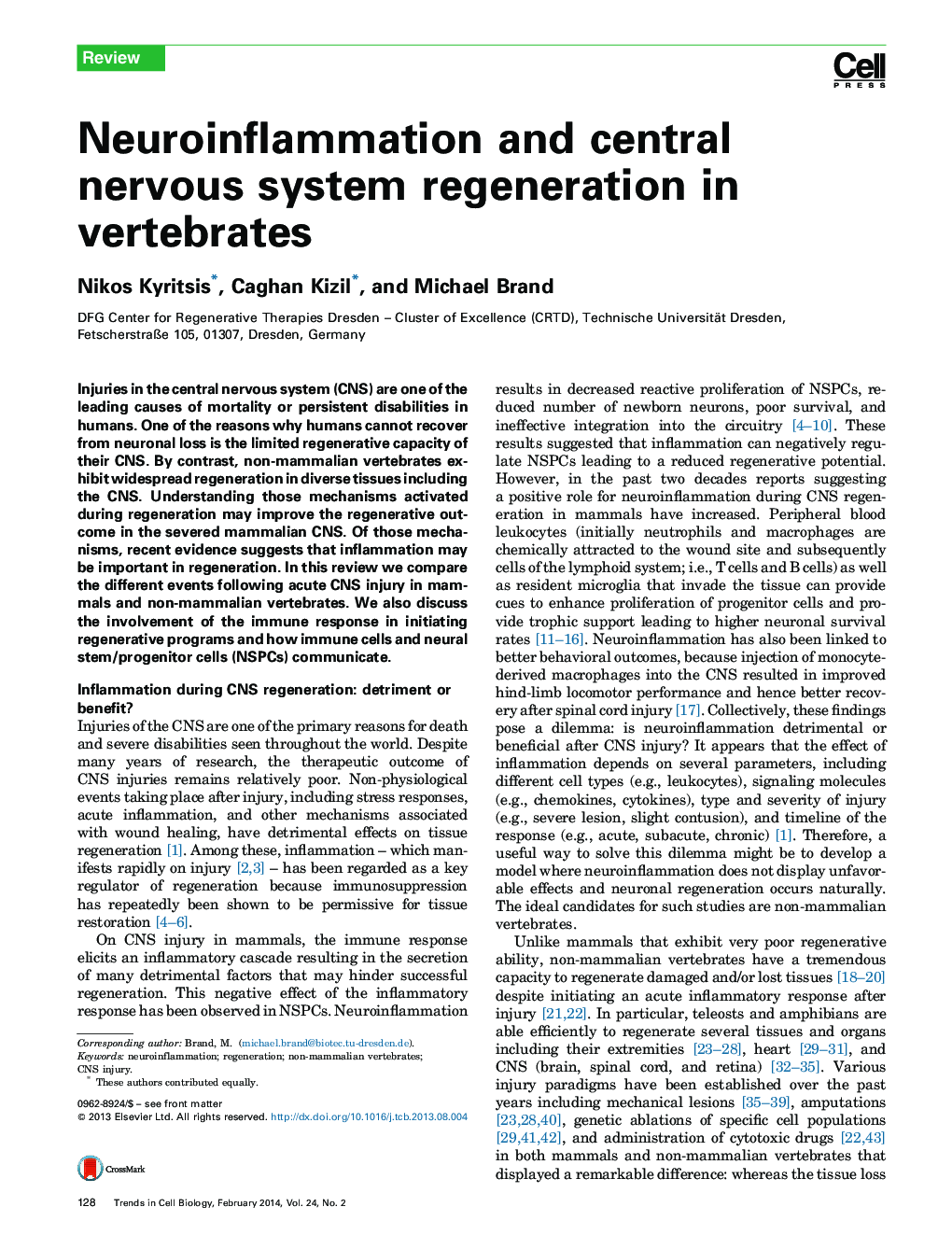| Article ID | Journal | Published Year | Pages | File Type |
|---|---|---|---|---|
| 2204440 | Trends in Cell Biology | 2014 | 8 Pages |
•The exact role of neuroinflammation on CNS injury remains elusive.•Non-mammalian vertebrates regenerate their CNS in the presence of neuroinflammation.•In zebrafish, inflammation is necessary for the regenerative response in the brain.•Knowledge acquired in non-mammalian vertebrates could be translated into mammals.
Injuries in the central nervous system (CNS) are one of the leading causes of mortality or persistent disabilities in humans. One of the reasons why humans cannot recover from neuronal loss is the limited regenerative capacity of their CNS. By contrast, non-mammalian vertebrates exhibit widespread regeneration in diverse tissues including the CNS. Understanding those mechanisms activated during regeneration may improve the regenerative outcome in the severed mammalian CNS. Of those mechanisms, recent evidence suggests that inflammation may be important in regeneration. In this review we compare the different events following acute CNS injury in mammals and non-mammalian vertebrates. We also discuss the involvement of the immune response in initiating regenerative programs and how immune cells and neural stem/progenitor cells (NSPCs) communicate.
